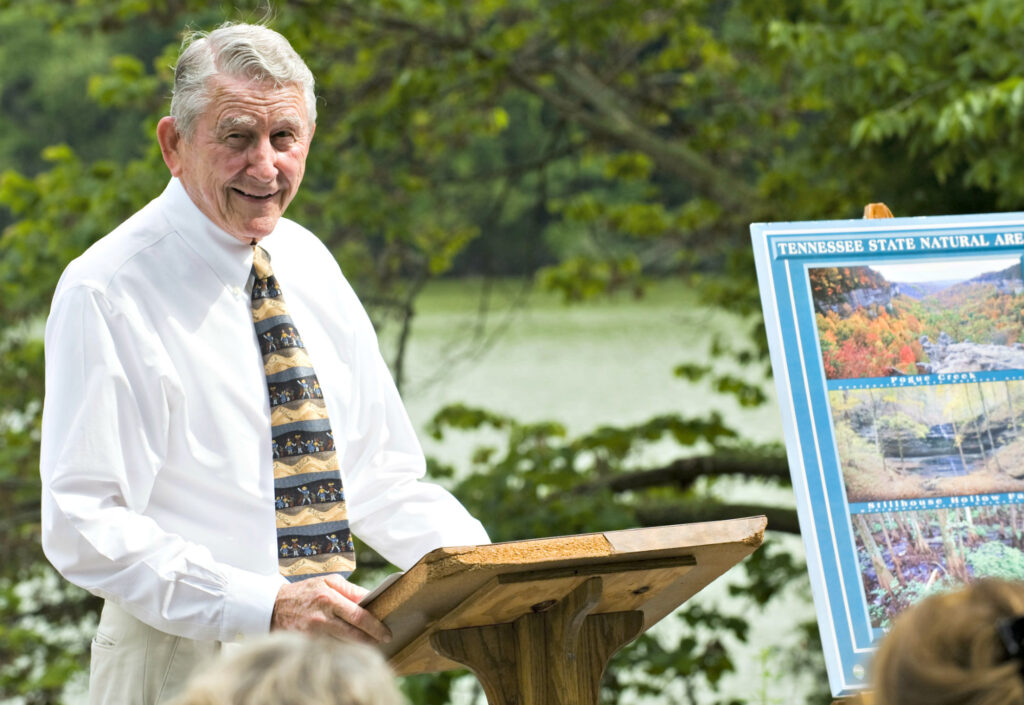
Former Tennessee Governor Winfield Dunn died recently at 97, but his contributions to conservation remain a living legacy.
In 1971 Dunn signed the Natural Area Protection Act that provided protection and preservation for more than 100,000 acres in 80 areas across the state.
“In his time, Gov. Winfield Dunn and his team acted as Tennessee’s version of our original conservation President, Teddy Roosevelt,” said Tennessee Department of Environment and Conservation Commissioner David Salyers. “Many of the things we celebrate today – from clean, abundant water to special places like nowhere else in the world – can trace their roots back 50 years ago to the administration of Gov. Dunn.”
An example of those special places is the Radnor Lake Natural Area, located a few miles from booming downtown Nashville. It would have been threatened – and perhaps overrun – by creeping development if not for the provided protections. Instead, Radnor Lake remains largely pristine and receives accolades as one of the state’s top natural areas.
Likewise, Tennessee’s Fall Creeks Falls been named one of ten national “Hidden Treasures” by an outdoors travel site.
The park, atop the Cumberland Plateau, is the state’s largest at 29,800 acres, preserved in part by Dunn’s foresight.
As governor he promoted public education, affordable housing and other initiatives that improved the lives of citizens, while as a conservationist he helped preserve the state’s natural treasures.
Tennesseans will continue to benefit from Winfield Dunn’s vision for many generations to come.
License hike comments: Hunters and fishermen can comment on a proposed increase in licenses and boat registration fees prior to the Tennessee Fish & Wildlife Commission’s vote in December.
A comments link is provided on the TWRA website, tnwildlife.com under Media/Newsroom. Comments will be accepted through November.
The biggest hike would be a 28% increase in basic hunting/fishing licenses. Commissioners say a substantial increase in licenses and boat fees is necessary to offset soaring operational expenses, mostly driven by inflation. The last license increase was in 2015.
License sales and related uses fees provide the bulk of the TWRA’s operating budget. The Agency receives no tax dollars, despite providing a wide range of costly public services and management of flora and non-game species.
Details about the proposed increases are provided on the TWRA website.
Contact information: Email area outdoors news to [email protected]. Please include a phone number for verification purposes.



